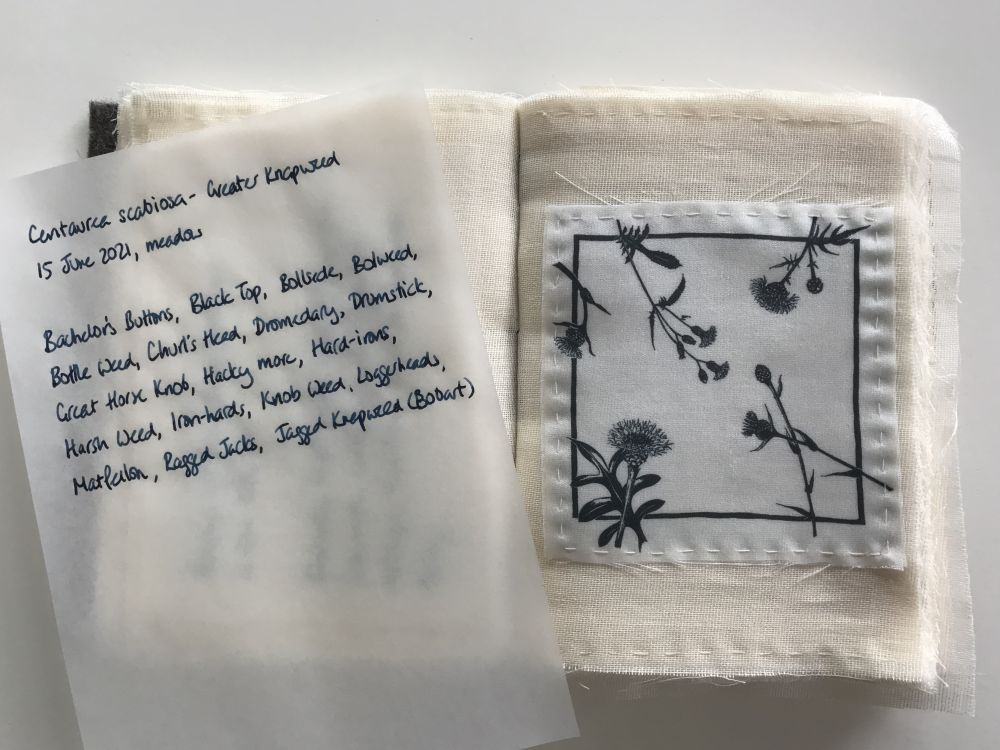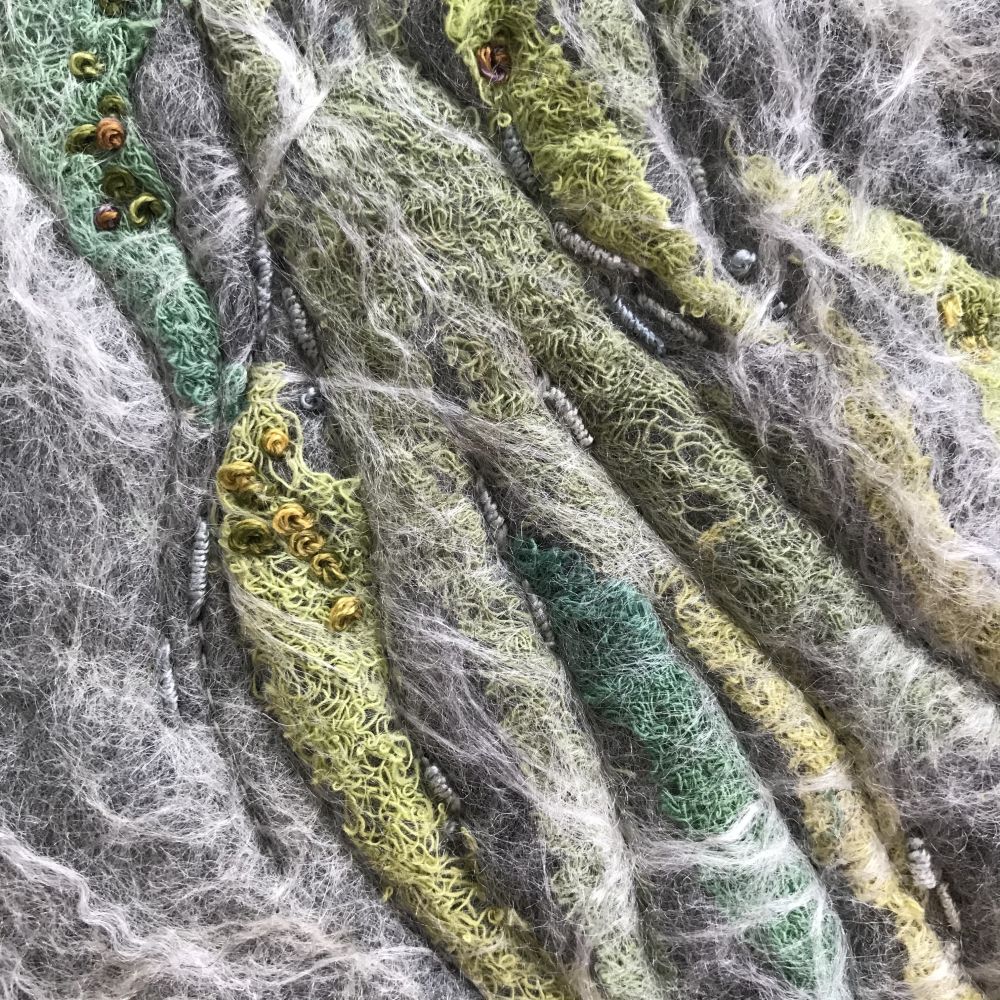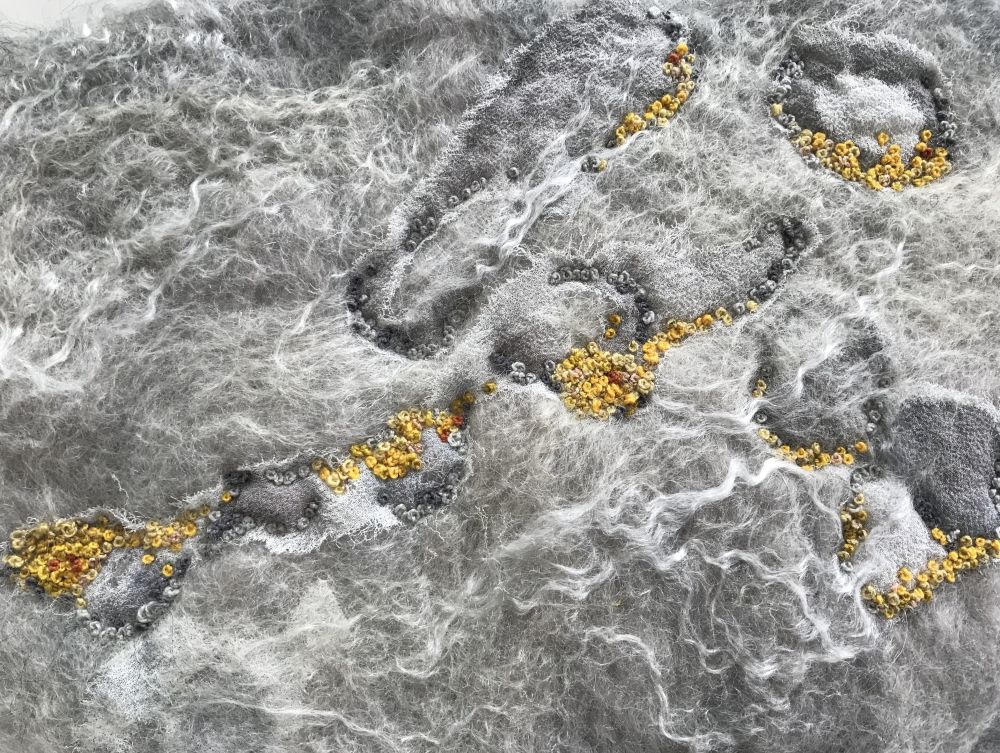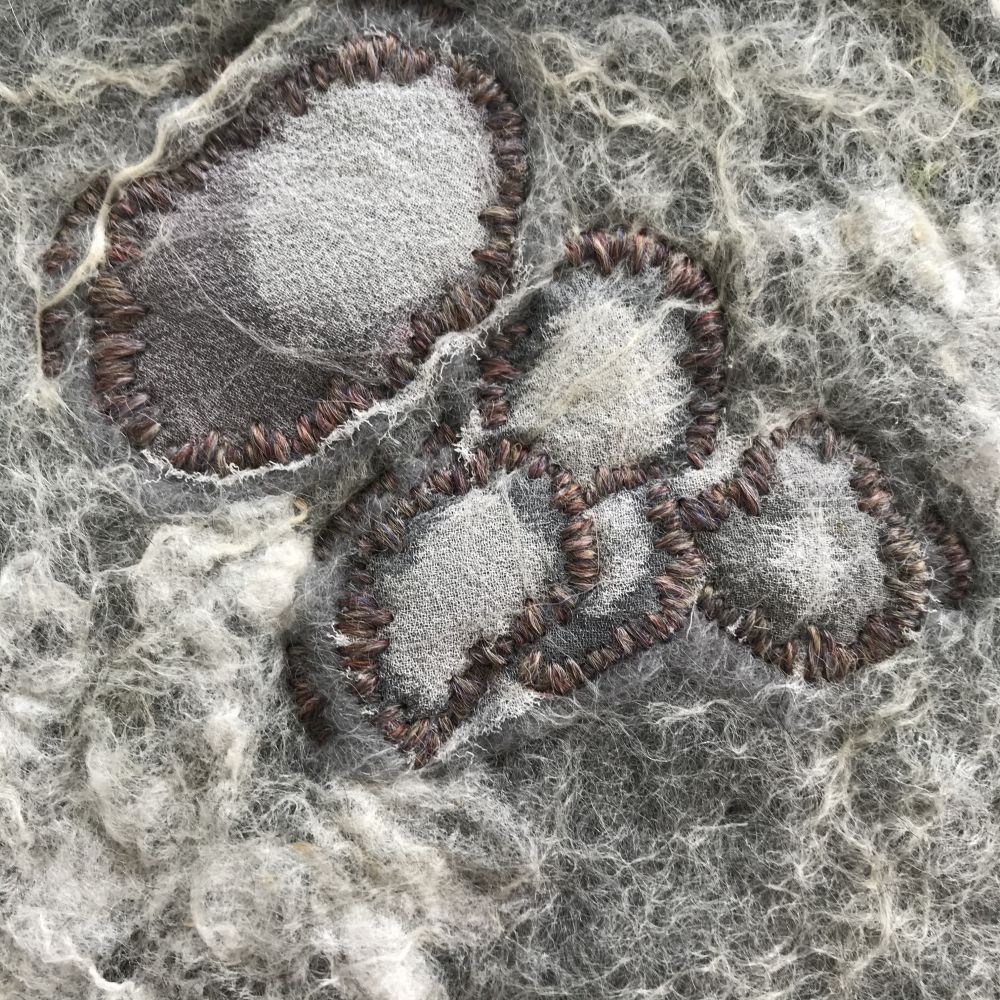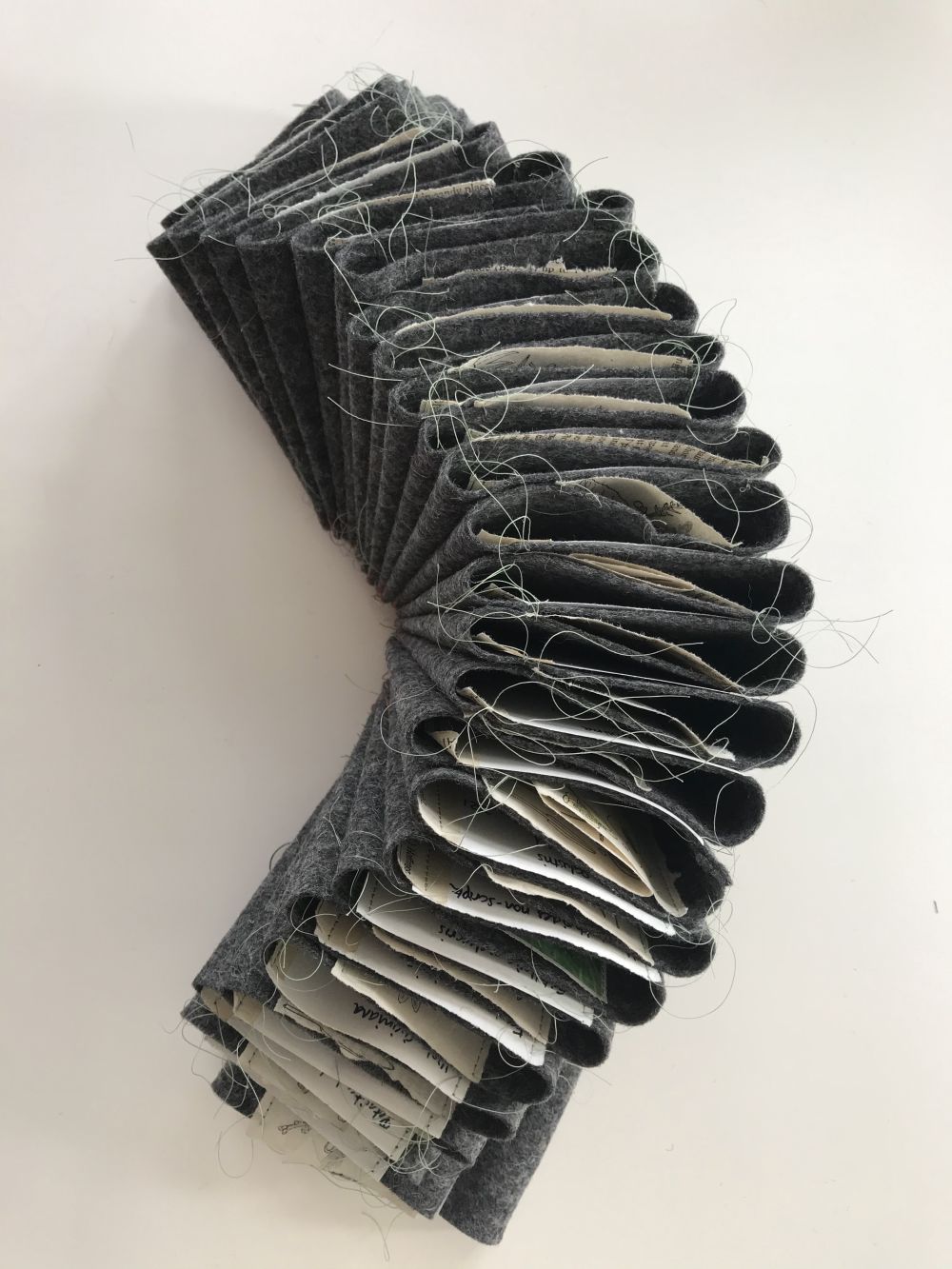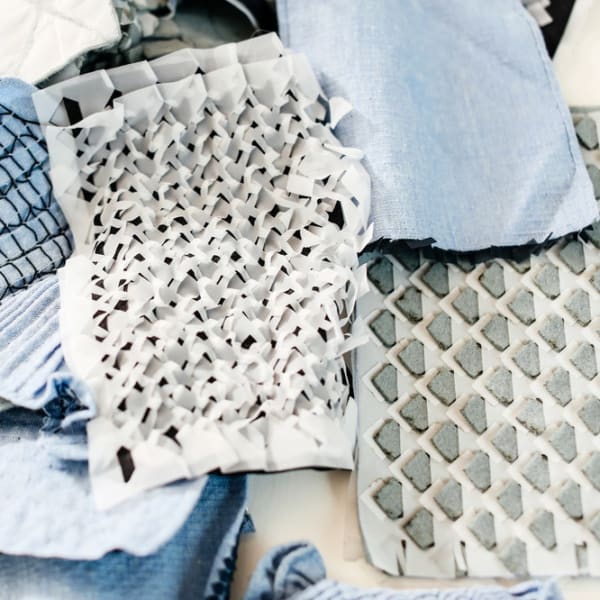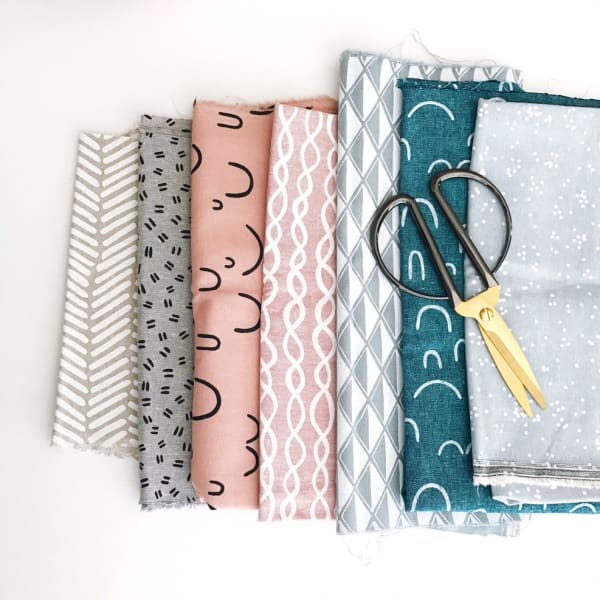
How the Textiles Folio short course can inspire your dream career change
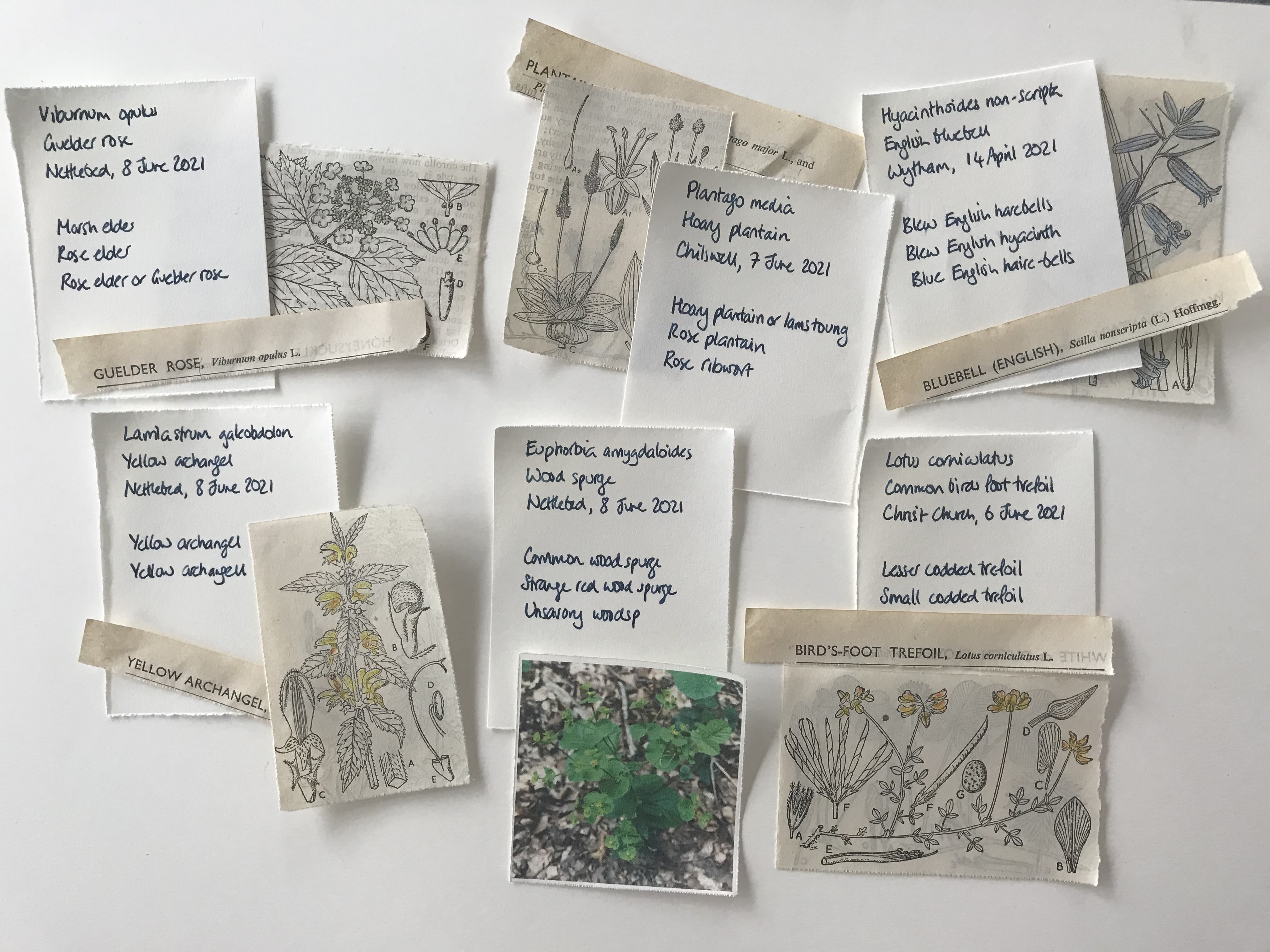
- Written byOliver Jameson
- Published date 05 January 2022

From global economics to environmentally-conscious textiles art – former student Dr. Penelope Brook’s experience on the Textiles Folio Online Short Course can inspire your creative career change.
After almost four decades working in public policy and economics, UAL short courses gave Dr. Penelope Brook the opportunity to indulge a life-long passion and take new steps on her creative journey.
From a background as an art enthusiast, an opportunity for a new direction came in the form of the Textiles Folio short course: a comprehensive portfolio-building programme covering a wide range of aspects of making and designing with textiles, including using tools and materials, practical skills and idea generation.

“I’ve always drawn and always looked at art,” she explains. “Pursuing this is picking up a theme that has run all the way through my life; of making art and loving textiles. I have this amazing opportunity to begin a next phase of life that’s much more focused on art.”
The Textiles Folio was one of several textiles-related short courses at UAL that broadened Penelope’s experience with the field, providing opportunities to develop an awareness of not just the physical making processes needed to make her ideas a reality, but also new methods of research and design thinking to elevate her practice. “I really fell in love with the research method. What I loved about the course was it covered a lot about how you think when working to a brief, how you do research and how to develop your practice. That was completely new to me!”
“The way in which the course got you to think about the evolution, development of a project; the emphasis on drawing, and an approach to criticism, where they managed to give feedback that was both tough and incredibly encouraging.”
“When you got the tough feedback, it was always a bit of a nudge towards what to do next, so it was a very empowering environment.”
Now an MA Textiles student at the Royal College of Art, Penelope creates tactile explorations of the natural world. Botany, landscape and biodiversity are at the core of works that embrace the long-standing relationship between people and the nature with which they co-exist.
Penelope’s detailed works evoke the experienced landscape with felt abstraction, detailed stitching and layered textiles. Yet they are more than just a representation of what is seen and experienced in nature. Rather, they also embody a potential for changing our contemporary relationships with nature at a time when forward-thinking approaches to protecting the environment are so desperately needed.
“Both of my parents were botanists, so it probably set me off in a certain direction. A continuing motivation behind that work is a desperate concern with biodiversity loss; combining that with a deeply held belief that the arts can help people look at things and come to care about things in different ways.”
Building on past experiences — including the Floral Painting for Design Online Short Course — Penelope’s time on the Textiles Folio course provided a valuable opportunity to experiment with new methods of making and discover some favourites, though she very much acknowledges that developing a creative practice is a continuous process.“I’m still working that out!” she says of her preferred textiles mediums. “I love hand stitching and hand making. Something which the Textiles Folio course really pushed me on was how much can you make what you use. That was one of the inspirations behind getting into using felt. I loved working with very beautiful pure wool felt that I was buying, but I was thinking what if I made it myself?”
Though studying during the pandemic had its challenges, Penelope found some solace in producing work meditating on her local surroundings, using the course as an opportunity to create intimate material experiments with a strong sense of place. “One of the unintended benefits of the pandemic has been being in one place. A lot of my work has been inspired by the Chilswell Valley; walking across the meadows near where I live, going again and again, getting to begin to know a place and its changes through the seasons.”
Despite its focus on hands-on practice, Penelope cited the structure of the online Textiles Folio short course as adapting well to suit the needs of individual students, no matter where they were working from. “They did an absolutely amazing job of figuring out how to do the Textiles Folio course fully online, and found ways of introducing us to different practices and techniques with what we could find around the house,” she explained. “That was incredibly inspiring and pushed you to innovate and think a lot.”
From a practical foundation built with the help of UAL short courses, Penelope’s story as an artist is well underway. Back in the studio after a year of working from home, the uncertainty of what comes next is an exciting prospect. “What’s next is to work hard at developing my practice and to learn all kinds of things! By necessity, a lot of the work I’ve done so far is quite small scale. I’m really interested to see what happens when I take things to a bigger scale.”
You can create your own fresh start in the arts with the Textiles Folio Online Short Course; an extensive introduction to the design skills and research methods needed to succeed in making with textiles. The 14-week course, which explores a wide range of materials, processes and ideas, will help you find your niche and produce an eye-catching body of work ideal for pursuing further study. If you're interested in finding out more, have a look at what tutors and students have to say about the course.
In our range of textiles and materials short courses, there’s something to accommodate all levels of interest and experience. Whether you’re a long-time practitioner looking to bring a new medium to your work, or just finding your feet in the world of textiles design. Kids and teens can join in too, with specialist courses aimed at 11 to 18-year-olds.
